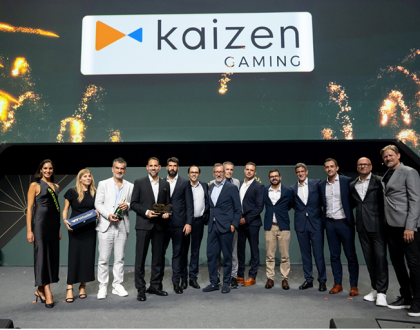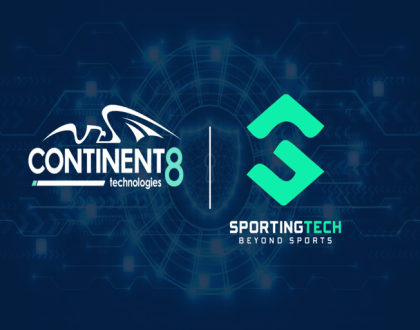The Role of Feedback in iGaming Development

Development of successful #iGaming products relies heavily on the #feedback received from #players throughout the development process. Feedback is imperative for identifying and addressing issues in gameplay, graphics, user experience, and overall satisfaction. It is crucial for developers to actively seek and incorporate feedback to ensure their iGaming products are well-received and successful in the competitive market.
Understanding Feedback in iGaming
While developing iGaming products, it is necessary to understand the crucial role of feedback in the process. Feedback provides valuable insights into player preferences, perceptions, and behaviors, helping developers make informed decisions to enhance the overall gaming experience. By actively seeking and analyzing feedback, iGaming developers can refine their products, address player needs, and stay competitive in the ever-evolving industry.
Types of Feedback in iGaming
Feedback in iGaming can be categorized into different types, each offering unique perspectives on the player experience. The main types of feedback include:
- In-game Feedback: Direct feedback provided by players while engaging with the game.
- Surveys and Questionnaires: Structured feedback collected through surveys to gather specific insights.
- User Reviews: Feedback shared by players on platforms or forums, reflecting their overall satisfaction.
- Focus Groups: Feedback obtained through discussions with a selected group of players to research deeper into their preferences.
- Data Analytics: Feedback derived from analyzing player data, such as gameplay patterns and spending habits.
Any iGaming developer should consider leveraging a combination of these feedback types to gain a comprehensive understanding of player preferences and behaviors.
| Understanding | Feedback Types |
| In-game Feedback | Direct feedback from players during gameplay |
| Surveys and Questionnaires | Structured feedback through surveys for specific insights |
| User Reviews | Player feedback on platforms or forums |
| Focus Groups | Feedback from selected player discussions |
| Data Analytics | Feedback derived from player data analysis |
Methods of Collecting Feedback
To gather feedback effectively, iGaming developers employ various methods to capture player sentiments and preferences. These methods of collecting feedback include:
Plus, incorporating feedback mechanisms within the game interface enables real-time feedback collection, providing instant insights into player experiences and allowing developers to make timely adjustments to improve gameplay.
The Impact of User Feedback on iGaming Design
Enhancing User Experience through Feedback
Feedback is an invaluable tool in the world of iGaming development. By actively listening to users' comments, suggestions, and complaints, developers can gain crucial insights into what works well and what needs improvement in their games. This direct line of communication with players allows for real-time adjustments to enhance the overall user experience.
Feedback-Driven Design Decisions
Impact of user feedback on iGaming design is profound. Developers can analyze feedback data to identify patterns and trends, which in turn can inform important design decisions. By integrating player suggestions and addressing common issues, developers can create games that resonate more effectively with their target audience, leading to higher satisfaction and retention rates.
Through a design approach that is driven by user feedback, developers can navigate the fine balance of incorporating innovative features while meeting player expectations. This iterative process of gathering, analyzing, and implementing feedback ultimately results in games that are more engaging and enjoyable for the players, setting them apart in the competitive iGaming market.
Feedback and iGaming Development Process
Integrating Feedback into the Agile Development Cycle
Agile methodology is at the core of iGaming development, allowing teams to respond quickly to changes and deliver high-quality products efficiently. To maximize the benefits of feedback in the Agile development cycle, it is crucial for teams to integrate continuous feedback loops at every stage of the project. This includes collecting feedback from stakeholders, testers, and end-users throughout the development process.
By incorporating feedback into each sprint, iGaming development teams can identify issues early on, make necessary adjustments, and ensure that the final product meets user expectations. The iterative nature of Agile development lends itself well to frequent feedback sessions, ultimately leading to a more refined and polished end product.
Role of Prototyping and User Testing
Cycle Prototyping and user testing play a pivotal role in enhancing the iGaming development process. Prototyping allows developers to create interactive mock-ups of the final product, providing stakeholders and users with a tangible example to provide feedback on. User testing, on the other hand, allows developers to gather real-time insights on how users interact with the product, identify pain points, and make informed design decisions.
iGaming companies that prioritize prototyping and user testing are better equipped to create engaging and intuitive gaming experiences that resonate with their target audience. This iterative approach not only leads to a more user-friendly product but also helps in mitigating potential risks and maximizing ROI in the long run.
Feedback Analysis and Implementation
Quantitative vs. Qualitative Feedback
Your iGaming development process relies heavily on feedback to ensure that your games are engaging and enjoyable for players. When analyzing feedback, it is imperative to consider both quantitative and qualitative data. Feedback can be categorized into these two broad types, each offering valuable insights into different aspects of game performance. Quantitative feedback includes measurable data such as user metrics, ratings, and statistics, providing a numerical basis for evaluating player experiences. On the other hand, qualitative feedback involves subjective opinions, comments, and suggestions from players, offering in-depth perspectives on their gaming experiences.
Data-Driven Approaches to Feedback Interpretation
Interpretation of feedback plays a crucial role in improving iGaming development strategies. By utilizing data-driven approaches to feedback interpretation, developers can extract valuable insights to enhance game features and overall player experience. This involves analyzing quantitative data using tools like analytics software to identify trends, patterns, and areas for improvement based on player behavior and preferences.
Qualitative feedback adds another layer of insight by capturing player sentiments, preferences, and suggestions in their own words. By combining quantitative and qualitative feedback analysis, developers can gain a comprehensive understanding of player needs and preferences, leading to targeted improvements that resonate with their audience.
Feedback for Continuous Improvement
Iterative Design and the Feedback Loop
An important aspect of iGaming development is the iterative design process, which involves refining and improving a game through multiple feedback loops. An iterative approach allows developers to gather feedback from players, analyze it, and implement changes to enhance the gaming experience. This ongoing cycle of feedback and adjustment ensures that the game meets the players' expectations and remains relevant in a competitive market.
Case Examples of Feedback Leading to iGaming Innovations
The incorporation of feedback from players has led to numerous iGaming innovations. For example, the introduction of in-game chat features was a direct result of player feedback expressing the desire for more social interaction during gameplay. Understanding player preferences and behaviors is crucial for iGaming developers to create engaging and successful games.
Challenges in Feedback Management
Balancing Diverse Player Opinions
Many iGaming developers face the challenge of managing and prioritizing diverse player opinions when it comes to feedback. With a broad player base encompassing individuals with varied preferences, skill levels, and expectations, it can be difficult to navigate the sea of feedback and determine which suggestions to prioritize. Developers must strike a balance between listening to their players' input and staying true to their vision for the game. This challenge requires a deep understanding of the player base and the ability to identify common trends and valuable insights from the vast pool of feedback received.
Managing Negative Feedback and Criticism
Feedback often comes in the form of negative comments and criticism, which can be challenging for iGaming developers to handle. Any negative feedback, however, should not be dismissed outright as it can provide valuable insights for improving the game. It is crucial for developers to approach negative feedback with an open mind and view it as an opportunity for growth and enhancement. By addressing negative feedback constructively, developers can show players that their opinions are valued and that their concerns are being taken seriously.
Player feedback is crucial in the development and success of iGaming products. By managing and leveraging feedback effectively, developers can enhance player experience, improve game features, and foster a stronger sense of community within the gaming community.
Future of Feedback in iGaming Development
Predictive Analytics and Player Feedback
After gathering and analyzing player feedback, the next step in the evolution of feedback in iGaming development is the integration of predictive analytics. This technology enables developers to anticipate player behavior and preferences based on past data. By combining player feedback with predictive analytics, developers can create more personalized and engaging gaming experiences. This approach not only enhances player satisfaction but also allows for targeted improvements and updates to games.
Embracing New Technologies for Feedback Collection
With the rapid advancements in technology, iGaming developers are increasingly turning to innovative tools and platforms for feedback collection. From AI-driven chatbots to real-time data analysis, these new technologies offer more efficient ways to gather and interpret player feedback. By leveraging these tools, developers can gain deeper insights into player preferences and behaviors, ultimately leading to more refined and successful game development strategies.
iGaming companies are investing heavily in technologies that can provide real-time feedback on player experiences. This includes the use of AI and machine learning algorithms to analyze player interactions and preferences. By harnessing the power of these technologies, developers can make data-driven decisions to enhance gameplay and overall player satisfaction.
Final Words
With this in mind, it is evident that feedback plays a crucial role in the development of iGaming products. By actively seeking and effectively utilizing feedback from players, developers can improve their games, enhance user experience, and ultimately drive success in the highly competitive iGaming industry. Incorporating feedback mechanisms into the development process can lead to innovative features, increased player engagement, and long-term loyalty. It is important for iGaming companies to prioritize feedback and continuously strive to meet the expectations and preferences of their target audience.
FAQs
What role does player feedback play in iGaming development?
Player feedback is crucial for identifying issues and enhancing gaming experiences.
What are the main types of feedback in iGaming?
They include in-game feedback, surveys, user reviews, focus groups, and data analytics.
How can iGaming developers collect player feedback?
Methods include in-game interfaces, surveys, forums, and data analysis tools.
Why is Agile development important for incorporating feedback?
Agile allows developers to respond quickly to feedback and refine products iteratively.
What challenges do iGaming developers face in managing feedback?
Challenges include balancing diverse opinions and handling negative feedback constructively.
Recommended Posts

Kaizen Gaming’s Success at SBC Awards 2024
October 4, 2024

Sportingtech Boosts Security with Continent 8
October 4, 2024

Hidden Treasures of Rome Slot by Swintt
October 4, 2024




